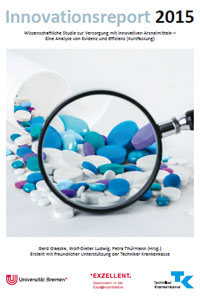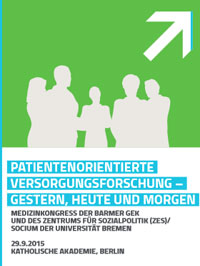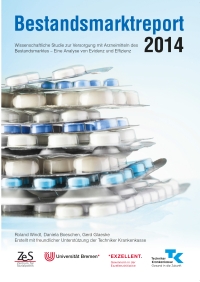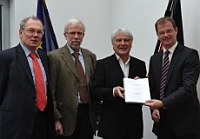 Cover Innovationsreport 2015
Cover Innovationsreport 2015This is the third publication of the Innovation Report. Edited by Gerd Glaeske, Petra Thürmann and Wolf-Dieter Ludwig, the Innovation Report provides the first data on prescriptions of new drugs – which distinguishes it from all other reports on pharmaceutical products. These drugs, which have undergone the AMNOG early evaluation process, are subjected to a review which also includes everyday medical treatment. Both the prescribed amounts and expenditure are considered and set in relation to the benefit of these medicines in their respective indications.
Gerd Glaeske (SOCIUM, University of Bremen), Wolf-Dieter Ludwig (HELIOS-Klinikum Berlin-Buch and Chair of the Drug Commission of the German Medical Association) and Jens Baas (Chair of the Board of the Techniker Krankenkasse health fund) presented the Innovation Report 2015 on September 9th, 2015 in Berlin. The report was drawn up, with the kind support of the Techniker Krankenkasse, by a team of authors comprising Daniela Boeschen, Dörte Fuchs, Dr. Judith Günther and Prof. Dr. Gerd Glaeske from the Health Care Research Division of the Department of Health, Long-Term Care and Pensions at SOCIUM (formerly ZeS), University of Bremen. The report evaluates evidence on and the efficacy of new medicines that came onto the market in 2012 and considers their prescriptions in the years 2012 and 2013 in the light of routine data from the Techniker Krankenkasse.
Download: Innovationsreport, Long Version, in German
Contact:
Prof. Dr. Gerd Glaeske (verstorben)














